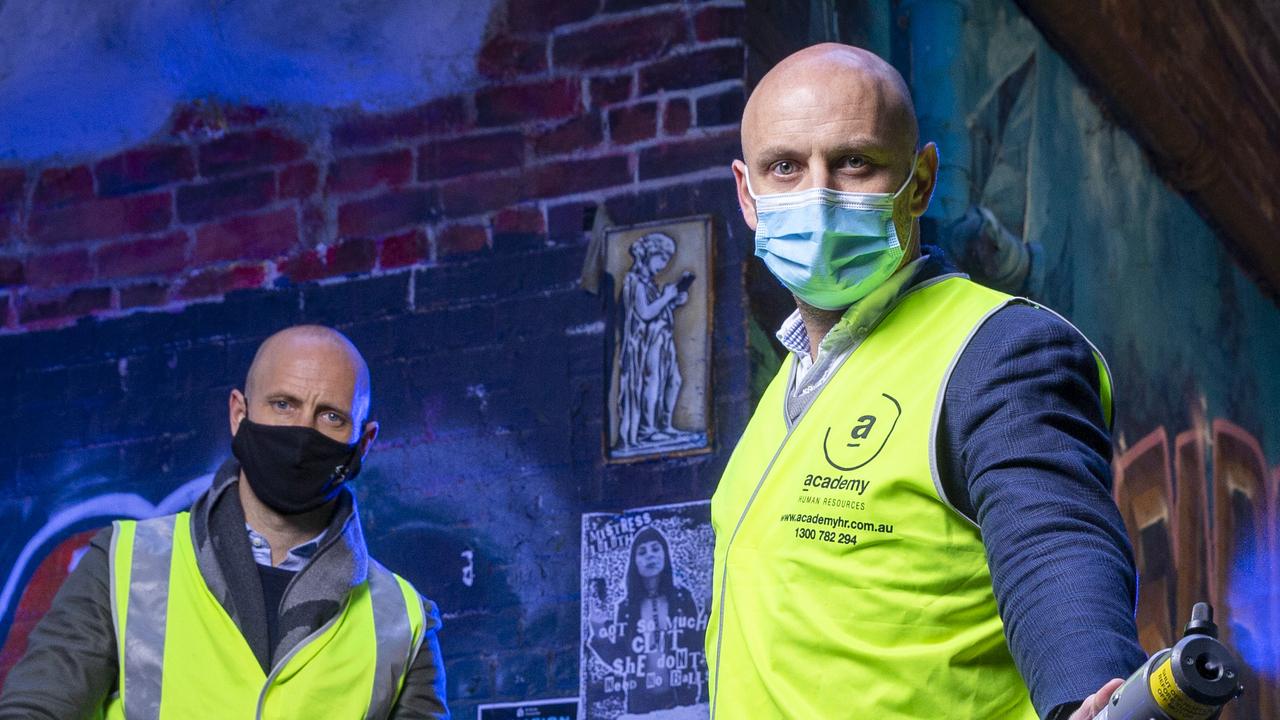Why you should take getting a good night’s sleep seriously
Evidence shows we’re no longer getting enough rest and it’s doing us harm. But specialists at The Alfred are awake to the problem and are doing something about it. PLUS: TOP TIPS TO IMPROVE YOUR SLEEP.
It’s not just a chance to rest your legs, give your mind box seats to a slide show of vivid dreams or cuddle up to a loved one.
Evidence continues to emerge about the importance of a good night’s sleep for its role as the “garbage truck” of the brain by cleaning out toxins, not to mention its impact on combating diseases like dementia, heart disease, depression and obesity.
But with the increase of technology in everyday life, the blurring of the traditional work-life balance and the rise of obesity, head of general respiratory and sleep medicine at The Alfred, Professor Matthew Naughton, says society is generally significantly more sleep deprived than it was 100 years ago.
And it was time we took the quest for good sleep more seriously.
“We estimate that if you go back in the last century, we’ve dropped sleep by about a third — about three hours less sleep a night,” Naughton says.
“Anyone who sleeps less than eight hours regularly is potentially sleep deprived. If people sleep less than four hours regularly, it’s thought they are unable to take on any new tasks.
“With smart phones and Fitbits, people have become preoccupied with their health. We want to place sleep on par with diet and exercise — that’s the triad of good health.”

In its quest to do just that, The Alfred has opened its new sleep laboratory, 25 years after opening its first sleep lab and 50 years after starting the first sleep research in Australia.
The lab boasts private bedrooms with ensuites where patients are monitored overnight by specialists.
It’s here the experts can pick up on how many times the patient wakes each night, if they stop breathing or if their oxygen levels drop. These are important pieces to the diagnosis puzzle.
The number of patients being referred to the service has increased by 20 per cent a year in recent years.
“We sit down, listen to the patient’s story and have a detailed examination,” Naughton says. “Their symptoms might be snoring, insomnia, excessive sleepiness or sleep walking. Someone might be referred to us because they’ve been in a crash. The sleep test is the icing on the cake.”
Naughton says the link between snoring and heart disease has been a major focus of the lab, prompting the development of new treatments for chronic snoring.
“(For) someone who snores and has pauses to their breathing, the snoring is putting a strain on the heart,” he says.
“We’ve become more sophisticated in trying to treat snoring. There are many more operations, mouth guards, forms of CPAP (continuous positive airway pressure), pacemakers and medications.”
There is also a growing recognition of the link between sleep and obesity.
“Sleep deprivation changes people’s appetite, but it’s been something that has been largely ignored,” he says. “One of the simplest things we can do to prevent it is if people pay attention to their sleep habits to improve their body weight control.”

John Roebuck, 31, says he’s never had a good night’s sleep in his whole life.
“I wake up 30-40 times a night, for as long as I can remember,” he says.
“I thought it was just normal, so I didn’t do anything about it. So it was such a relief when I found out there was a problem.”
The Melbourne video editor is among the growing number of people seeking help at The Alfred laboratory.
“I hear how nice it is to wake up feeling refreshed. The entire night it feels like I’m awake,” Roebuck says.
READ MORE:
TWO DRUGS THAT COULD FIGHT DEADLY FLU
‘SINGLISM’ THE NEW WORKPLACE DISCRIMINATION
WHAT IT’S LIKE TO SWIM WITH BRIGHTON ICEBERGERS
“The older you get, the more concerned you get with this sort of stuff. When you’re younger you don’t really care about the longevity of your health.”
Sleep studies revealed he has a rare form of sleep apnoea called central sleep apnoea, where his brain doesn’t send the right signals to the muscles that control breathing, which constantly wakes him up.
He is now trialling CPAP, a breathing mask that increases air pressure in the throat to stop the airway from narrowing.
“I did have one night where I rested really well,” he says.
“It’s frustrating because now I know how it feels. I feel like I’ll be super human if I can start to sleep well.”
CHANGES TO MAKE AT HOME TONIGHT
- If you can’t get to sleep within 30mins of going to bed, get up and sit in another room in subdued lighting. When you feel sleepy, go back to bed. This helps link bed with sleep in your mind.
- Keep the hour before bed as “wind down” time. Develop a routine that prepares your body and mind for sleep. Listen to quiet music or a relaxation app.
- The bedroom should be quiet, dark and comfortable. No electronic devices.
- We do far better with regular hours of sleep. Going to bed and getting up at similar times is good.
- Regular snoring is normal, but loud snoring on most nights is not and should be checked out.
Source: sleephealthfoundation.org.au


